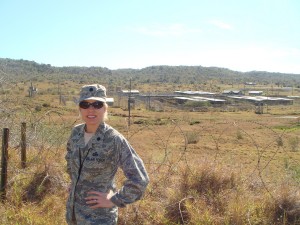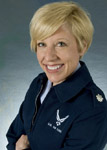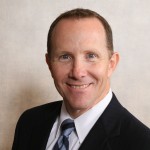As the year comes to a close (how is it already November?), it’s time for the New Professionals Section Executive Committee to recruit new members to shape the Section in 2012. Some of us are moving on to other Section or Chapter opportunities, and some of us are taking a victory lap on the Committee. But, we all agree that serving on the Committee has been a valuable experience both personally and professionally. Some Committee members shared their thoughts on the benefits of volunteering with New Professionals:
“The PRSA New Professionals Section served as a bridge from PRSSA to PRSA. In my three years on the committee, I connected with top thought leaders in our industry, gained new perspectives from national peers and further developed my leadership skills. Any new professional who is dedicated to and passionate about our profession should join PRSA and volunteer on the national level.”-Sarah Siewert, Chair
“Being a part of the Executive Committee for New Professionals Section has given me the opportunity to work with other talented new pros in the industry and stay connected to the PR world. We’ve planned events nationwide (New Pros Week) and started new initiatives for the Section (Tweetchats). By taking on a leadership role, I’ve been able to gain valuable experience, which has helped to build my portfolio.”-Leah Moon, Social Media Editor, Chair Elect
“I enjoyed working with the PRSA New Professionals Section this year as a blog co-chair. Helping our Section execute its first Tweetchat was exciting. It was a shining example of public relations at work, and it all started with one blog post about a Summer Book Club selection. The Committee afforded me a great opportunity to meet new people and learn about various aspects of the public relations field from experienced PR pros. I became so hooked on volunteering that I chose to serve another year. It is a great platform to share information with PR professionals who are newbies like me.”-Diahnn Henderson, Blog Chair
“Being on the New Professionals Executive Committee has been a fantastic experience, not only has it helped me strengthen my leadership skills, but I’ve had the opportunity to work and learn from such talented people from across the country.”-Anna Cramer, Programming Chair
“Before I joined the EC, I was worried about the time commitment. It turns out, that’s not an issue at all – if you see a position on the EC that’s open and you’re interested in it – go for it! The extra hours I spend a month programming for the New Professionals give me the event planning experience that I don’t have a lot of in my current position. Not to mention, scheduling the programming gets you in touch with all the speakers, which is great networking! I liked it so much, I’ll be doing programming again in 2012. As much as I loved working with Anna [2011 programming co-chair] this year, I’m excited to welcome a new programming co-chair next year!”-Elizabeth Rhoads, Programming Chair
“Volunteering as a membership co-chair was a great way to meet New Professionals Section members around the country! From the working relationship with my fellow Committee members, to the interactions with members and leadership from local chapters, being a part of the New Professionals Executive Committee helped me network with colleagues from various industries. It was a rewarding experience that will undoubtedly be a significant part of my professional development.” –Joshua Romero, Membership Chair
“Being on the New Professionals Executive Committee as the PRSSA liaison has been a great experience. It’s allowed me to connect with PR students across the nation and start their PRSA foundation after graduation.” – Alyssa Bronikowski, PRSSA Liaison
“Serving as the blog co-chair for the New Professionals Section has been more rewarding than I could have hoped. Not only did it allow me to do what I love (write and edit), but it opened new doors for networking and professional development. As a new professional with a small network of PR pros, I was given the opportunity to meet other new professionals in the Committee and reach out to experienced PR professionals to guest blog for us. I have learned a tremendous amount from these new connections, through their writing, their shared experiences and their drive to make our Section better every year. I’m so happy to be returning as blog co-chair next year, and I can’t wait to see what new ideas the new co-chair will bring to the table!”-Heather Sliwinski, Blog Chair
If you’re interested in becoming part of the 2012 New Professionals Section Executive Committee, please fill out our online volunteer interest form, select New Professionals Section from the drop-down menu and complete by Monday, Nov. 14.
We hope to see you on the Committee in 2012!



